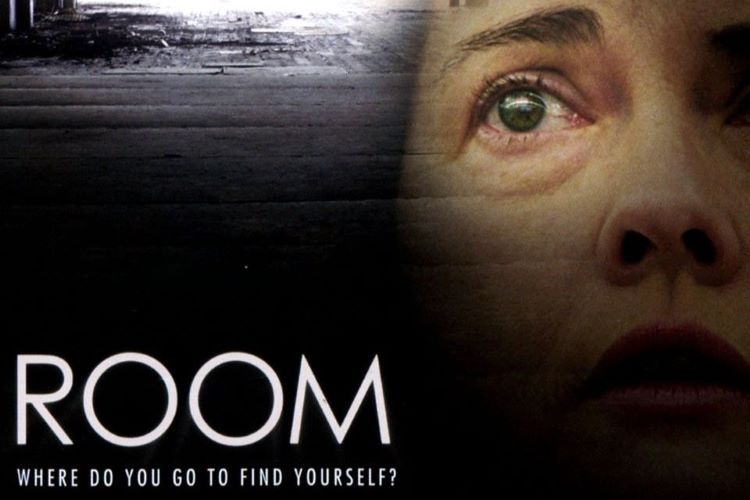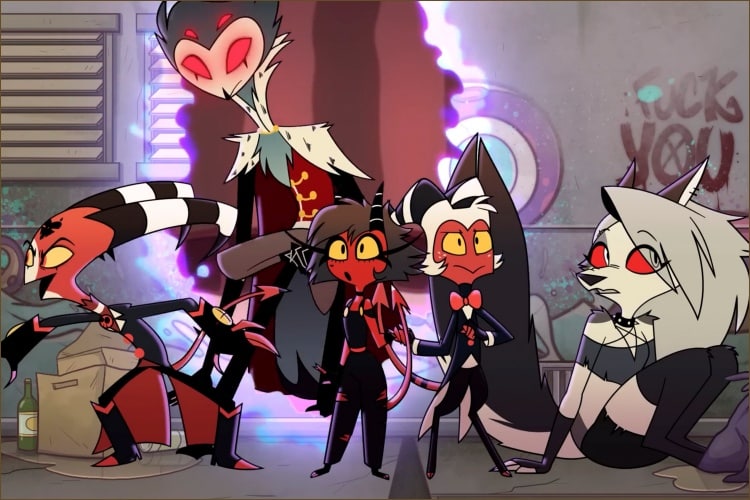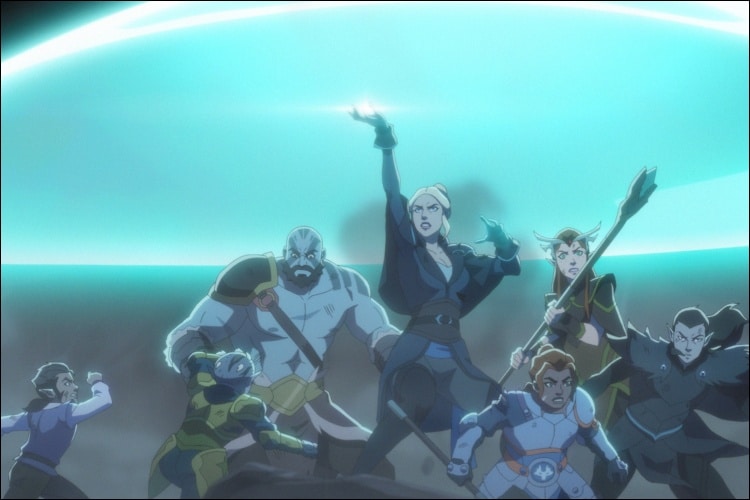This Room Has No View
Main Cast: Cyndi Williams
Director: Kyle Henry
Kyle Henry is a writer/director who hasn’t written a movie since 2005. And if his last effort, Room, is any indication, that’s a good thing. That’s not fair, the movie’s not a total waste. It does show promise. Unfortunately, it gets right up to the moment of truth, stops at the precipice, then laughs in the face of that promise and says, “SUCKERS!”, then turns tail and runs while the credits roll, leaving the audience saying, “Wait, what?”
The story, such as it is, deals with middle-aged housewife Julia Barker, who is eking out an existence in Texas with her husband and two daughters. She works at a Bingo parlor (is that right? Bingo shop doesn’t sound right, and Bingo game doesn’t describe it…I don’t know, wherever one goes to play Bingo, that’s where Julia works), and her boss has cut her paychecks in half, crying poverty and promising that, after Christmas he’ll make it up to her. Unfortunately, if she doesn’t get paid, there’s not going to be a Christmas in the Barker household.
Julia, meanwhile, isn’t exactly a model employee, showing up late more often than not, claiming migraines kept her from work. Meanwhile her husband is inattentive and her oldest daughter is sneaking out of the house at night.
Julia isn’t having a grand time with life lately. Then she starts having visions of a large room, like an open loft. She doesn’t know
what she’s seeing or why she’s seeing it, but after waking from a fainting spell to see her car has crashed into a sign pointing toward the airport, Julia decides to solve this mystery. She steals a bag full of cash from the safe at the Bingo parlor (it’s got to be parlor, that’s the only word that feels right), then hops a plane and flies to New York where, I guess, she has decided this empty room is located.
She’s alone in a strange place and has a few adventures, and by “adventures” I mean she meets a loser in a bar, takes him back to her motel room for the night, then runs into an old friend from Texas who has changed her name and is now a struggling actress in New York. While searching for this mysterious room, she stumbles into some kind of support group, then sneaks out again. At her friend’s insistence, she contacts a real estate agent in hopes she can help Julia find this room, but, again, has no luck. Then someone hands her an envelope on the street with a big red arrow on it. This is the key, she decides, and follows a series of chalk arrows around town until she gets to the place she is sure she’s been searching so desperately for.
Unfortunately, it’s just a rave.
It’s hard to go much further without revealing the whole end of the movie, but suffice it to say there isn’t really an ending to this exercise in frustration.
Look, I’m all for directors trying to be edgy or deep or use a lot of symbolism to tell their story. While I didn’t review it, I dug Shane Caruth’s Upstream Color, even though I had to read the Wikipedia entry to figure out what the hell was going on. But Caruth is an intelligent filmmaker, and, while his endings aren’t always the most concise or understandable, they are endings nonetheless. Kyle Henry just went out, not even with a whimper. He kind of slinked out of the room and closed the door very quietly behind him then snuck down the hall, took the stairs because he didn’t want the ding of the elevator to disturb anyone, grabbed a cab and disappeared into the night. Meanwhile the viewer is left slack jawed and dazed, waiting for that one final scene that ties it all together and reveals the point.
The star of the movie is Cyndi Williams, who is different from Cindy Williams who played Shirley on Laverne and Shirley. Cyndi Williams had a small role in Temple Grandin, but otherwise hasn’t been in anything you’ve probably heard of, including Room. She does a decent enough job as Julia as both of them probably had no idea what they were getting into, Julia with her trip to New York and Cyndi with her decision to do this movie. She definitely conveys that sense of life beating the crap out of her pretty well with her string of bad hair days and mom jeans.
There were a few scenes when her hopelessness seemed so damned overwhelming that I actually related and sympathized, but at no point did I feel Julia was a strong character. Yes, she stole the money, hopped the plane, left the family behind in search of an hallucination, but I never felt she was calling any of her own shots. Instead, she was how I think many of us feel, just passengers along for the ride in their own lives. And I feel like that should be something in the movie’s favor. Unfortunately, along for the ride doesn’t really cut it in movies. We’re watching a story that is supposed to have a beginning, middle and end, and by the end, we’re supposed to feel some sense of resolution, even if it’s just Julia giving up, going home, admitting what she did, getting arrested, and then discovering it was all because of a brain tumor. At least that would have been SOMETHING that made the preceding 73 minutes worthwhile. Instead, I feel like Kyle Henry had something he wanted to say, lost track of it midway through the movie, and then simply forgot to film the ending. Maybe he got distracted by the shiny objects, who knows?
The direction was about as average as average gets, resulting in a movie that looks like the epitome of what an independent movie looks like. If you’ve seen one you’ve seen them all, and Room offers not one ounce of originality or style.
Oftentimes when I see movies like this I try to walk away feeling like, whether good or bad, I took something from the movie. In this case, though, I don’t feel like that. Instead it’s like Kyle Henry was thirsty, but all I had on me was a ten, so I gave it to him to get a Coke at the gas station, but when he walked out, not only did I not get my change, he didn’t even offer me a sip. Ungrateful punk! Next time film a damned ending to your movie and then MAYBE that’ll excuse the meandering nothing that preceded it for over an hour.

C. Dennis Moore is the author of over 60 published short stories and novellas in the speculative fiction genre. Most recent appearances are in the Dark Highlands 2, What Fears Become, Dead Bait 3 and Dark Highways anthologies. His novels are Revelations, and the Angel Hill stories, The Man in the Window, The Third Floor, and The Flip.







Comments
db
It was over your head. I'll spell it out for you. This movie is demonstrating through the viewer experience that sometimes, you have your frustrating and imperfect life and even though you may be driven crazy by dissatisfaction, to run away […] Read MoreIt was over your head. I'll spell it out for you. This movie is demonstrating through the viewer experience that sometimes, you have your frustrating and imperfect life and even though you may be driven crazy by dissatisfaction, to run away in search of a half-understood fantasy or even just a fantasy of the unknown, is an exercise in pursuit of oblivion, that ends in the exact same void. Our lives are simple, frustrating and ultimately unsatisfying in the ways that perhaps we yearn for them to be, perhaps unless we embrace the simple and the small and the imperfect. The viewer experience of the ending exists to present the same challenge to you within your viewing that the main character does: this life offers no resolution, it is frustrating and small and without obvious meaning and ultimately if you yearn for more than this, you will be disappointed. Your fantasies of being involved in the "Grand Narratives" are a sickness that harms only yourself in that they rob you of undertaking the real challenge of this life, of moving into acceptance of your small and simple life, acceptance of self, acceptance of this precise moment in time and space. If the film had ended with a resolution of her actions, going home and making amends, the entire premise of the film would have been utterly undermined. You are meant to be left searching for meaning. You are meant to be left asking "that's it? That's what this was supposed to be? That's all?" This, this experience and these questions are the central thesis of the film. It is a view and an undeniable experience of crushing existential oblivion. It is not a movie that offers Marvel-esque Hollywood gratifications, it offers a real and profound challenge to viewers, to confront this face of reality. To confront your own dissatisfaction. To realize that there is nothing more than this moment, this space you are in right now, this body, this self. You are always at the defining moment of your life: right now. Right here. Read Less
db
to db
Also, you used a poster from the wrong movie as the header for your article.
Sue Millinocket
to db
In that you are correct - thank you for pointing it out!